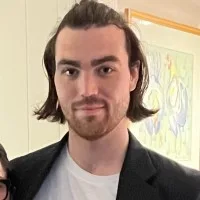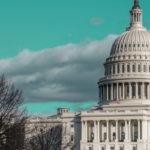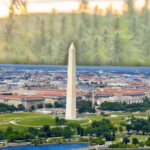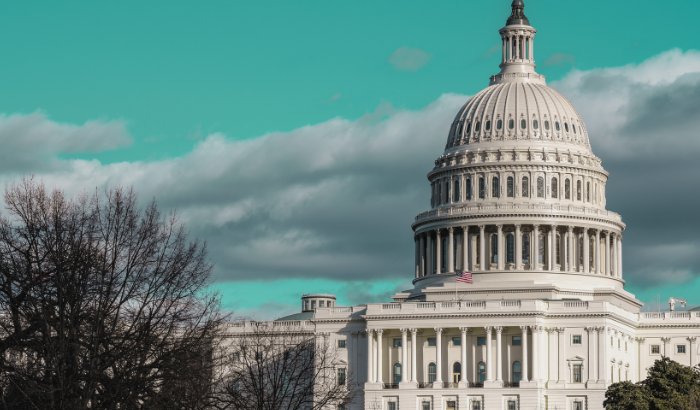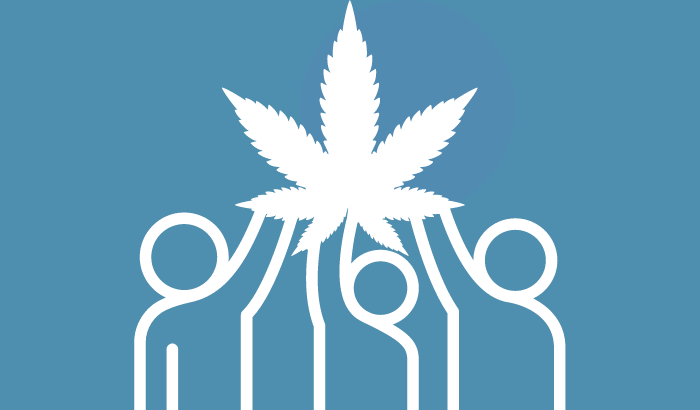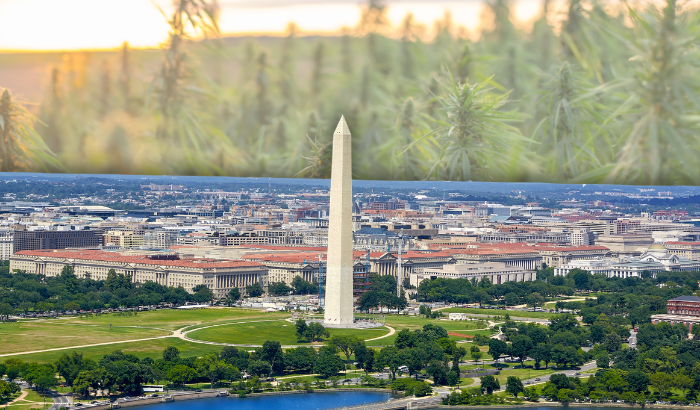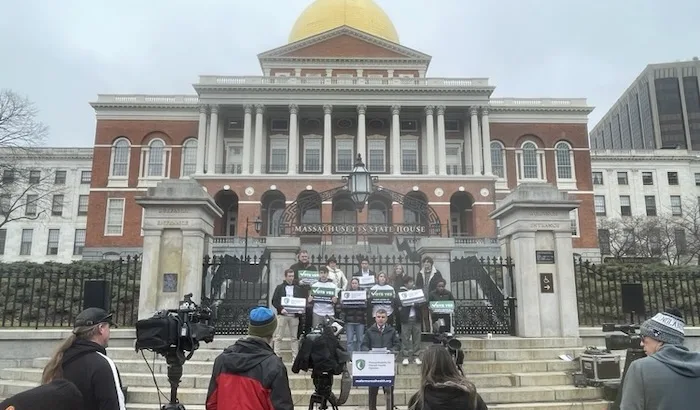
From generating buzz around their cause to getting heard on Beacon Hill, psychedelics advocates had a big March. But underneath the wins, fractures in the movement as well as external opposition could undermine legalization efforts.
Throughout this year’s New England Cannabis Convention in Boston last month, the buzz surrounding psychedelics was palpable. People engaged in conversations on subtopics spanning regulations to legacy market integration, while the issue of eventual retail sales came up in panels as well as on the trade show floor and at afterparties, where heads shared psilocybin bars and bags of mushrooms along with requisite prerolls.
“The vibe was there, but it was still absolutely hidden from the mainstream,” Dr. Riley Kirk said. The co-founder of the Network of Applied Pharmacognosy and host of the BioActive Podcast added that while Boston and NECANN are generally “very accepting of psychedelics … we [still] have a long way to go.”
Along with NAP Co-Founder Dr. Miyabe Shields, Kirk was a featured guest on a convention panel titled “Weird Brains: Embracing the Stoner Neurotype, Nonconformity, and Shaping a Modern Renaissance.” In the session, the podcaster and researcher said she remains “excited to see the intersection of cannabis and psychedelics studied,” elaborating that “there is clear interplay” between weed and psychedelics, which she described as “synergistic.” “Using cannabis alongside psychedelics can add to providing the right brain space for a psychedelic experience,” Kirk said.
From the outside looking in, things seemed to be going smoothly for the movement heading into March as well, with the state’s legislature’s Joint Committee on Public Health advancing a bill proposal in late February “concerning the legal use of the plant medicine known as psilocybin for therapeutic, spiritual, and medicinal purposes.” But in the week after the conference heading into April, a collective common cold, potentially born from the effects of rainy weather and shared joints which plagued many NECANN-goers, also seemed to infect the zeitgeist around the legalization of psychedelics in Mass.
The big hearing
The center of attention for people on all sides of the Massachusetts psychedelics space right now is a ballot initiative that “would allow persons aged 21 and older to grow, possess, and use certain natural psychedelic substances in certain circumstances”—specifically mushroom-based psilocybin and psilocyn, as well three plant-based substances: dimethyltryptamine (DMT), mescaline, and ibogaine. The petition also outlines regulations for licensed facilities, personal home cultivation, and taxation. Similar to the Cannabis Control Commission (CCC), there would be an appointed body and an advisory board to oversee implementation. If voted into law, it would take effect on Dec. 15, 2024.

Many psychedelics advocates, however, take issue with the ballot language, which was introduced by New Approach PAC, a well-funded national player in the drug legalization arena. Many grassroots activists favor an approach closer to what’s outlined in the much simpler proposed legislation, Act Relative to the Regulation and Taxation of Natural Psychedelic Substances. And last Tuesday, with a topical buzz from NECANN still in the wind, a veritable who’s who of the psychedelic science world showed up on Beacon Hill to testify on that proposal as well as the pending referendum before the state’s Special Joint Committee on Initiative Petitions.
Leading up to the hearing, one source close to the hosting committee said that they expected powerful people from various Mass agencies and both the House and Senate to be paying close attention. Those who wound up watching the five-hour marathon meeting got their fill, as the room filled with bold ideas, big personalities, and unsubtle tensions simmering beneath a surface-level cordiality.
Earlier expert testimony came from Dr. Franklin King, the director of training and education at the MGH Center for Neuroscience and Psychedelics. He noted that when it comes to health concerns over increased personal use of psychedelics, “there is ample evidence from population-level studies that naturalistic psychedelic use is associated with a host of potential benefits—including lower rates of addiction and better rather than worse overall mental health.” “Education,” King added, “is key to preventing adverse psychological harms.”
Also on the expert list was Dr. Matthew Johnson, a professor of psychiatry and behavioral science at Johns Hopkins University. Johnson, who has become something of a psychedelic rockstar since appearing on comedian Joe Rogan’s podcast, expressed his strong support for legalizing psychedelics, but also emphasized his belief that “[dose limits] are going to have to be regulated by a state… authority.”
“I know the initiative talks about a gram of psilocybin and 18 grams of mescaline,” Johnson said via Zoom, adding that those details would “be meaningless to users.”
Another sticking point for Johnson was language pertaining to training and regulating licensed facilitators. The doc warned committee members of “the dangers of untrained practitioners and guides,” who he said often give off “guru vibes.” Johnson noted recent reporting on facilitator misconduct, which spurred him to double down on his support for “as much regulation as [possible] in terms of minimizing the potential for those harms.”
Providing testimony in support of the measure, the grassroots campaign director representing the group Massachusetts for Mental Health Options behind the ballot initiative delivered an emotional speech that appeared to connect with some committee members. Emily Oneschuk detailed the tragic loss of her brother, Andrew. After being radicalized online, he was murdered by his roommate and fellow member of a neo-Nazi group—right as she was making headlines of her own as the first-ever female Navy SEAL applicant. Oneschuk wound up being deployed to Spain to run a refugee camp after the fall of Afghanistan, only to experience sexual harassment and assault. She was eventually honorably discharged as a conscientious objector, but found herself in a battle with “a combination of depression, PTSD, and anxiety.”

“It didn’t seem to matter what I did, where I went, [or] who I was with,” Oneschuk testified. Eventually, she found the HOPE Project, which brought her to attend a week-long psilocybin therapy retreat in Jamaica. “It opened my eyes and completely changed the trajectory of my healing,” she said.
Zooming in from the Pacific coast in support of the measure was Sam Chapman, who is executive director of the Healing Advocacy Fund in Portland, Oregon. Chapman served as the campaign director for Oregon’s psilocybin therapy-legalizing measure, which New Approach helped pass in 2020 and which regulators finally put in place last year. He said his state still has “a lot of work to do to continue to actually make these services affordable,” but disputed claims of costs for treatments running thousands of dollars per session.
“Despite what you may have heard,” Chapman said, “the current starting price for an individual [psilocybin-assisted therapy session] is around $750.” He added, “These prices differ for a lot of different reasons,” noting that Oregon is now “seeing prices come down from where they started” in January 2023.
The opponents
Doctors John Fromson and Seyyed Ghaemi testified against the psychedelics ballot measure. The longtime members of the psychiatric establishment made remarks that at times evoked audible exasperation from attendees, and which also invited questions from committee members which indicated that some may be leaning toward supporting legislation ahead of the November election and referendum results.
Dr. Ghaemi, who is vocal about his reverence for Big Pharma, was dismissive of the scientific evidence cited by supporters. The Tufts University professor of psychiatry and pharmacology described psychedelics as drugs “of abuse,” and downplayed the data suggesting psychedelic use carries a low risk of addiction—even going so far as to equate a potential post-legalization wave of increased psychedelic use to the early days of the opioid crisis. “They said the same thing about OxyContin 20 years ago, and we know where that led us,” Ghaemi said.
In a lighter moment, state Sen. Paul Feeney regaled the room with a relatable tale from his youth in the early ’90s. A regular attendee of concerts at the old Boston Garden, he recalled people walking through the crowd and shouting that they had “fat bags of shrooms for sale.” Feeney then referenced Ghaemi’s own acknowledgment that roughly 20% of Americans in their twenties and thirties use or have used psilocybin, and asked whether—given the public health concerns the doctors raised—“it makes sense for us to have some sort of scheme to regulate it [or] to put guardrails around it strictly from … a public safety standpoint?”

Committee members hit opponents with a number of specific questions. State Rep. Alice Peisch asked about the potential timeline for FDA approval of certain psychedelics. Fromson, who is the outgoing president of the Massachusetts Psychiatric Society (Ghaemi is his replacement), said that establishing a formal state-run framework “makes sense if this ballot initiative passes.” He also strongly urged lawmakers to remove ibogaine from the proposal language.
In his turn to address the timeline question, Ghaemi offered a response that drew additional visible ire from advocates. “There are many pharmaceutical and biotech companies working hard to make good profit on this,” he said. The former employee of Novartis Institutes of Biomedical Research in Cambridge added, “So I don’t think it will be that long.”
Fromson conceded the validity of some supporting evidence, but reiterated his belief that “FDA approval will be the major breakthrough” required to justify legalizing psychedelics in any capacity.
When members of the public finally got their turn to chime in after invited experts spoke, several advocates rebuked the opposing testimonies. Cambridge resident Graham Moore addressed concerns about adverse interactions between psychedelics and pharmaceutical drugs, citing “a clinical trial that combined psilocybin with adjuncting SSRIs that [concluded] there was ‘no problem.’”
Fromson and Ghaemi, Moore said, “did not demonstrate a grasp of the scientific literature” they came to discuss.
Leaked emails, crossed signals
For the past several years, the bootstrapped advocacy group Bay Staters for Natural Medicine has been at the forefront of psychedelics reform in Massachusetts. Among other actions, BSNM supporters have spearheaded groundbreaking decriminalization campaigns in Somerville, Cambridge, Amherst, Northampton, Easthampton, Provincetown, Salem, and most recently Medford.
Bay Staters founder James Davis, a major voice in the movement, pre-registered to speak in support of the New Approach ballot measure on Beacon Hill last week. His testimony closed with a combative tone, though, as Davis cast doubt on assertions that service costs in Oregon have declined. With that, the BSNM leader restated his prior concerns that overregulation could impede equitable access to consumers and cultivators alike.
The relationship between Bay Staters and the ballot campaign has been complicated since New Approach arrived on the psychedelics scene in Massachusetts last summer. Davis has been a leading critic of the ballot initiative, but as our reporting revealed publicly for the first time in February, he initially showed support for the measure, with BSNM receiving a $35,000 donation from New Approach last fall. Davis and New Approach campaign spokesperson Jared Moffat exchanged accusations and ideas in the resulting article, with the former claiming the “payment was intended to influence our position and mute our affordability concerns.”
Adding to the intrigue is another revelation that New Approach actually reached out to Davis about some of the very same core policy concerns that Bay Staters has voiced since last summer. In the past week, Davis’ fellow grassroots coalition leaders said they were frustrated and confused to learn that Bay Staters had engaged in negotiations with PAC officials at all.
In an email exchange from July 2023 obtained for this article, Moffat wrote to Davis that he was “following up here about the two big pieces we discussed: the policy and a potential agreement to work together.” Moffat added that by moving forward in said potential agreement, they could in part “focus attention on [BSNM] priorities,” indicating that New Approach members identified one of those areas as “ensuring your coalition is at the table post-passage/implementation.”
In response, Davis wrote, “our top priority is community education,” and noted that if New Approach shared its draft policy document, Bay Staters “will keep it strictly embargoed to analyze with our coalition leaders and bring a draft letter for a meeting early next week.”
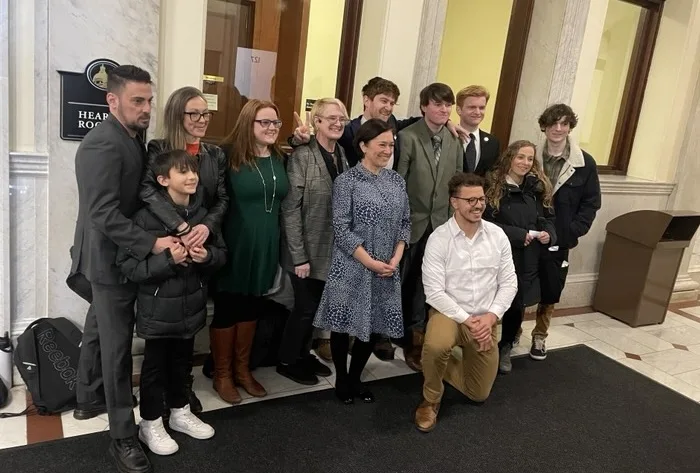
Davis has openly criticized New Approach for neglecting to work with grassroots leadership in crafting bills that could potentially replace or at least influence the ballot measure—like BSNM’s proposed substitute legislation, An Act Relative to Plant Medicine, or H.3605, which lawmakers referred to the committee on Health Care Financing in February. Yet emails appear to indicate otherwise. In a message dated July 20, 2023, Moffat shared details of New Approach’s proposed homegrow provisions, writing that the PAC’s leadership would be “grateful to get feedback on any aspects of this.” Specifically, Moffat wrote that his team wanted to incorporate parental rights and employee protections into the measure.
Concerns expressed by some Bay Staters supporters regard, among other things, the potential corruption of a new, unelected regulatory agency tasked with psychedelics oversight. In his testimony last Tuesday on Beacon Hill, for example, Davis referenced legal scandals circling the Mass Cannabis Control Commission. As an alternative, Bay Staters has sought to establish a regulatory body within the Department of Public Health; per emails obtained for this article, Moffat expressly sought input on this issue.
“One thing I wanted to ask your opinion about is the regulatory agency, which you mentioned yesterday,” Moffat wrote. The New Approach organizer added that Harvard Law School professor Mason Marks, the senior fellow for the Project on Psychedelics Law and Regulation (POPLAR) at Harvard’s Petrie-Flom Center for Health Law Policy, Biotechnology, and Bioethics, “suggested that the Dept. of Mental Health might be a good option.” Moffat asked Davis if the coalition had “thoughts about that?”
Meanwhile, other grassroots leaders said they weren’t even aware of these conversations, with some expressing feelings of betrayal.
“I’m really disappointed and honestly confused as to why James would have kept the fact that … New Approach attempted to engage our grassroots coalition in shaping the ballot initiative … a secret,” said Jamie Morey, the founder of Parents for Plant Medicine and a frequent Bay Staters collaborator.
Morey noted how Davis “chose to publicly say the opposite had happened,” and said that moving forward, she wants to “let [Davis] speak for himself to explain that and his motivations.” “As far as I’m concerned,” she said, “legalizing plant medicine is what I care about … this movement is so much more important than any one person.”
In a lengthy response to a request for comment on the nature of the emails, Davis confirmed their authenticity and reiterated his suspicion towards the ballot campaign leadership’s intentions: “The DC based interest group has not provided any feedback as to why it disagrees with our proposed substitute. … We have shared our policy concerns publically as they have evolved in real time on social media and high-profile media coverage in which we raised concerns without explicitly opposing the ballot question to keep the door open to collaboration.” (Read the full statement from Davis here.)
As for what these new developments mean for the Mass for Mental Health Options ballot strategy … Oneschuk touted the campaign’s growing coalition of supporters. With fewer than eight months left before the polls open in Mass, she emphasized continued efforts to engage grassroots leaders across the state in policy discussions.
“We have had more than 75 meetings with leaders in the grassroots movement, behavioral health groups, veterans groups and legislators… [and] have built a diverse coalition of stakeholders that are passionate about safe access to natural therapeutic medicines,” Oneschuk said. “We are open to collaborating with as many voices as possible to work towards creating a safe system that serves the people of Massachusetts.”
You can follow all the ins and outs of psychedelics in the Bay State and beyond in Jack’s Psychedelic State(s) of America newsletter covering the people, policies, and science driving the ongoing psychedelic science revolution.



